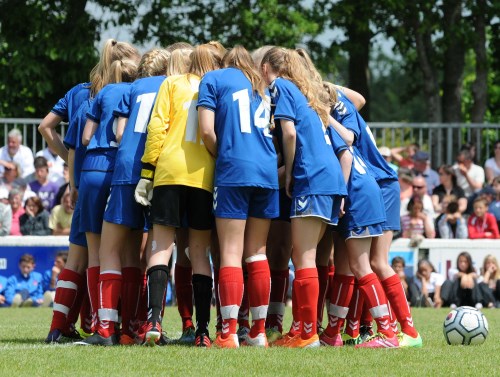Varsity versus junior varsity sports

Yesterday my wife and I watched our daughter's junior varsity soccer game. Several statistical questions came to mind.
Larger schools tend to have better sports teams. If the talent distributions of a large school and a small school are the same, the larger school will have a better team because its players are the best from a larger population. If one school is twice as big as another, its team may consist of the top 5% while the other school's team consists of its top 10%.
Does size benefit a school's top (varsity) team or its second (junior varsity) team more? Would you expect more variability in varsity or junior varsity scores? Does your answer depend on whether you assume a thin-tailed (e.g. normal) or thick tailed (e.g. Cauchy) distribution on talent?
What if two schools have the same size, but one has a better athletic program, say due to better coaching. Suppose this shifts the center of the talent distribution. Does such a shift benefit varsity or junior varsity teams more?
Suppose both the varsity and junior varsity teams from two schools are playing each other, as was the case last night. If you know the outcome of the junior varsity game, how much should that influence your prediction of the outcome of the varsity game? Has anyone looked at this, either as an abstract model or by analyzing actual scores?
Related post: Probability of winning the World Series